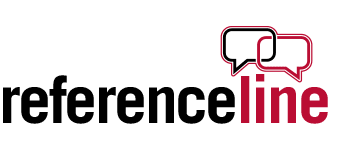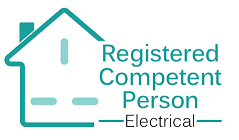M C T Electrical (East Anglia) Ltd
52 Broadland Drive, Thorpe End
Norwich
Norfolk
NR13 5BT
52.62432, 1.43291
Electrical Contractors
_
ELECSA
The Building Regulations are managed by the Department for Communities and Local Government (DCLG). Part P is an amendment of the Building Regulations introduced by the government, effective from January 1st 2005. These regulations introduced safety standards to electrical installations within domestic properties.
This means that, with few exceptions, any electrical work undertaken in your home such as the addition of a new electrical circuit or any work in your kitchen, bathroom or garden area must be notified to the Local Authority Building Control for inspection.
The Part P requirement is that “Reasonable provision shall be made in the design and installation of electrical installations in order to protect persons operating, maintaining or altering the installations from fire or injury.
Work affected by Part P is subject to notification to, and inspection by, building control bodies. However, calling in a building control officer takes time and costs money. The solution to this problem is self-certification.
Part P Competent Person Schemes like ELECSA were introduced at the same time as Part P to permit firms that had been assessed as sufficiently competent, to self-certify that their work complies with all applicable requirements of the Building Regulations.
Self-certification benefits the householder because by using a Competent Person they don’t have to pay building control fees or submit a building notice. In addition, householders have the important reassurance that by using a Competent Person, they are using a firm that has been independently assessed and certified as competent to carry out the work.
In addition, all authorised Competent Persons schemes are required to give the customers of their registered installer firms the opportunity to purchase an insurance backed warranty against the risk that the work carried out does not comply with the Building Regulations.
Electrical Contractors Association
Registered Membership of the ECA is available to businesses (sole proprietors, partnerships, limited or public liability companies) that carry out all types of electrical and electronic installation work and that meet the following criteria.
To become a Registered Member of the ECA, a business must:
Comply with the ECA’s Rules, Standing Orders, and Bye-laws and with the Code of Fair Trading.
Carry out safe electrical work that complies with the latest Wiring Regulations laid down by the British Standards Institution (BSI) and the Institution of Engineering and Technology (IET), or other relevant Building Regulations and British Standards.
Demonstrate your technical competence on joining the Association and at regular intervals thereafter by participating in either the ECA Membership Certification Scheme or the ‘Deemed to Satisfy’ Scheme.
Be registered with any one of the Government-approved Full Scope Competent Person Schemes for Part P of the Building Regulations, if you carry out domestic work.
Have been undertaking electrical contracting work continuously for at least one year.
Have a turnover in excess of £30,000 per annum and annual business trading accounts.
Hold public liability insurance for a minimum of £2 million.
Hold employer’s liability insurance (which must be displayed as required by law).
Have a written, dated and signed Health & Safety Policy Statement and appropriate risk assessment procedures.
Registered Competent Person - Electrical
The Registered Competent Person Electrical search facility lists all electricians registered to work for householders in England and Wales, making finding the right person for the job easier than ever before.
All electricians listed and permitted to display the mark are registered with an electrical Competent Person Scheme Operator, and have been authorised by Government to self-certify that their work is compliant with Building Regulations. This means they meet strict entry requirements, their work is regularly assessed, demonstrating their ability and ongoing competence, and that it meets the correct standards.
Trading Standards - Norfolk Trusted Trader
Norfolk County Council Trading Standards has established Norfolk Trusted Trader to address rogue doorstep trading, and the fear of it, by helping consumers to identify legitimate traders - thereby improving community safety and supporting older and/or vulnerable people to lead independent and safe lives.
The information shown above is provided by the firm or the relevant body. Memberships may lapse or require renewal so we recommend that you check that the firm is still a member when you contact them. Please tell Referenceline about any misleading claims.




